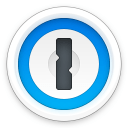Keeper vs Bitwarden: Which password manager is best for you?
- 01Keeper Security vs Bitwarden: overview
- 02What's the difference between Keeper Security and Bitwarden?
- 03Keeper Security pros and cons
- 04Bitwarden pros and cons
- 05Keeper Security compared to Bitwarden
- 06Bitwarden compared to Keeper Security
- 07Features comparison
- 08Keeper Security vs Bitwarden: Which is the best for your business?
- 09Promotions on Security software
- 10Alternatives to Keeper Security & Bitwarden
Save up to $180 on Keeper Security
Save up to $180 on Keeper Security
Password management software is essential for safeguarding your online accounts and sensitive data, ensuring your passwords are secure, organized, and easily accessible across all your devices. Whether you're an individual user or managing an organization, having a reliable password manager reduces the risk of breaches and enhances your digital security. However, with so many options available, choosing the right password manager can be a challenge.
In this article, we take an in-depth look at two popular password managers—Keeper vs Bitwarden. After reading, you'll gain a clear understanding of their key features, strengths, and weaknesses, helping you make an informed decision about which one best suits your needs for password security and management.
Keeper Security vs Bitwarden: overview
When it comes to password management solutions and security software, Keeper and Bitwarden stand out as strong contenders, each offering distinct strengths and capabilities designed to meet a variety of user needs.
Keeper is renowned for its robust security features, offering advanced encryption, biometric logins, and a comprehensive suite of tools for managing passwords, digital files, and even secure messaging. On the other hand, Bitwarden provides a highly customizable, open-source solution that appeals to both individual users and organizations. Bitwarden is favored for its transparency, cost-effectiveness, and flexibility, especially for users looking for control over their password management setup.
Let’s dive deeper into this Keeper vs. Bitwarden comparison to help you determine which password manager aligns best with your security needs and preferences.
What's the difference between Keeper Security and Bitwarden?
Keeper and Bitwarden are both highly respected password management tools, offering essential features like password storage, secure sharing, and multi-device syncing. However, the key differences between the two lie in their approach to security, pricing, and feature depth, making them suitable for different types of users.
Keeper is a premium password manager designed with enterprise-level security in mind. It offers robust features such as encrypted storage for passwords, files, and even secure messaging. Keeper is renowned for its zero-knowledge architecture, ensuring that no one, not even the company, can access your data. Additionally, it provides advanced features like biometric logins, breach monitoring, and dark web scanning. Keeper integrates with a wide variety of third-party services, making it adaptable for businesses of all sizes. However, this extensive feature set comes with a higher price tag, which may be a consideration for individual users or smaller organizations.
Bitwarden, on the other hand, is an open-source password manager known for its affordability and transparency. Bitwarden’s open-source nature allows security experts and users alike to review its code, enhancing trust in its security practices. It offers core password management functionalities like password generation, storage, and syncing across devices, but it also provides the option for self-hosting, giving businesses full control over their data. While Bitwarden’s premium features—such as encrypted file storage and advanced two-factor authentication—are available at a lower cost than Keeper’s offerings, its interface is slightly more minimalist and may require more technical familiarity for advanced configurations.
In summary, Keeper’s focus on advanced security features and ease of use makes it ideal for enterprises, while Bitwarden’s open-source flexibility and cost-effectiveness cater to individual users and smaller teams looking for a customizable, transparent solution.
50% off personal and 30% off Business Starter for 1 year on Keeper Security
Get 50% off personal and 30% off Business Starter for 1 year on Keeper Security and up to $180 savings with Secret.
Keeper Security pros and cons
What are the advantages of Keeper Security?
- Robust security features: Keeper uses end-to-end encryption, a zero-knowledge architecture, and supports biometric logins, making it one of the most secure password managers available.
- Comprehensive feature set: Beyond password management, Keeper offers additional tools such as secure file storage, breach monitoring, and dark web scanning, which add an extra layer of security.
- User-friendly interface: Keeper’s clean, intuitive design makes it easy for users to manage passwords, files, and security settings, even if they’re not technically inclined.
- Cross-platform compatibility: Keeper works across all major operating systems (Windows, macOS, Linux, iOS, Android), browsers, and devices, providing seamless syncing and easy access to passwords from anywhere.
- Excellent customer support: Keeper offers 24/7 customer support via chat, email, and phone, along with extensive guides and documentation for troubleshooting and assistance.
What are the disadvantages of Keeper Security?
- Higher price point: Keeper's premium plans are more expensive compared to other password managers like Bitwarden, which might deter individual users or small teams with tighter budgets.
- Limited free version: Keeper’s free version is quite limited, allowing storage on only one device, which restricts usability compared to other password managers offering more features in their free tiers.
- Feature overload for casual users: Some users may find Keeper’s numerous features like dark web monitoring and secure messaging unnecessary, especially if they’re just looking for a simple password manager.
- No open-source option: Unlike some competitors, Keeper is not open-source, meaning users cannot independently verify its security through public code reviews, which may raise concerns for privacy-focused individuals.
- Occasional interface bugs: Some users report minor issues with syncing or glitches when navigating the app, particularly when handling large volumes of stored data across multiple devices.
Compare Keeper Security to other tools
Bitwarden pros and cons
What are the advantages of Bitwarden?
- Open-source transparency: Bitwarden’s open-source nature allows anyone to review its code, ensuring transparency and trust in its security. It’s regularly audited by third-party security firms, making it a reliable choice for privacy-conscious users.
- Affordable pricing: Bitwarden offers an excellent free version with essential features, and its premium plan is one of the most affordable on the market, providing great value for individuals and businesses alike.
- Self-hosting option: Bitwarden offers the flexibility to self-host, giving businesses and advanced users full control over their password data. This feature is particularly attractive for those who prioritize data privacy and independence from cloud services.
- Cross-platform support: Bitwarden is available on all major operating systems (Windows, macOS, Linux, iOS, Android) and web browsers, ensuring smooth access and syncing across all devices and platforms.
- Strong security features: Bitwarden employs strong encryption (AES-256 bit), zero-knowledge architecture, and offers advanced features like two-factor authentication (2FA) and password strength analysis, ensuring high security for stored credentials.
What are the disadvantages of Bitwarden?
- Minimalist user interface: Bitwarden’s interface is functional but more basic and less polished than competitors like Keeper. Some users may find it less intuitive, especially if they prefer a more visually appealing or feature-rich dashboard.
- Limited customer support: While Bitwarden offers documentation and community forums, its customer support options are limited compared to premium services like Keeper, which provide 24/7 live chat and phone support.
- Requires technical knowledge for self-hosting: Although the option to self-host is a significant advantage for privacy, it requires technical expertise to set up and maintain, which could be a barrier for less tech-savvy users.
- No breach monitoring in free plan: Bitwarden’s free tier lacks features like breach monitoring and encrypted file storage, which are included only in the paid plan, limiting its capabilities for free users.
- Occasional sync delays: Some users report occasional syncing delays across devices, especially when using the free tier or self-hosted versions, which could disrupt workflow for users who need real-time access to their vaults.
Compare Bitwarden to other tools
Keeper Security compared to Bitwarden
Keeper and Bitwarden are two powerful password managers, each catering to different types of users. Keeper excels in providing a highly secure, user-friendly experience with advanced features such as encrypted messaging, dark web monitoring, and breach alerts. Its premium service is designed for users who prioritize robust security and a polished interface.
In contrast, Bitwarden is an open-source solution known for its affordability and flexibility, offering self-hosting options for advanced users. While Bitwarden’s interface is more minimalist, it provides core password management features at a lower cost, appealing to privacy-conscious users and smaller teams.
Is Keeper Security better than Bitwarden?
Whether Keeper is better than Bitwarden depends on your specific needs. Keeper offers a more feature-rich experience, with advanced tools like dark web monitoring and secure file storage, making it ideal for users or businesses requiring top-tier security and a highly polished interface. It also excels in ease of use, with a more streamlined setup process and strong customer support.
However, Bitwarden’s open-source nature, lower cost, and self-hosting options make it more appealing to those who prioritize affordability, data control, and transparency. For users focused on customization and budget, Bitwarden may be the better choice, while Keeper suits those seeking comprehensive security features.
What is Keeper Security best used for?
Keeper is best used for individuals and organizations seeking top-tier password security and comprehensive data management. It excels in protecting sensitive information through its advanced encryption, zero-knowledge architecture, and additional features like dark web monitoring and secure file storage.
Keeper is ideal for users who prioritize ease of use combined with robust security, offering seamless syncing across devices and biometric logins. Businesses benefit from its extensive admin tools, audit reporting, and team collaboration features. Keeper is particularly suited for those requiring enterprise-level security and advanced protection for passwords, sensitive files, and communications.
Can Keeper Security replace Bitwarden?
Keeper can replace Bitwarden for users who prioritize advanced security features, ease of use, and a more polished interface. Keeper offers additional tools like secure messaging, dark web monitoring, and detailed breach alerts, making it a compelling option for businesses and individuals looking for comprehensive protection.
However, for users who value affordability, open-source transparency, and flexibility like self-hosting, Bitwarden may still be a better fit. While Keeper excels in user experience and premium security, Bitwarden’s cost-effective approach and open-source nature make it appealing to privacy-conscious users and smaller teams, meaning Keeper may not be a one-to-one replacement for everyone.
Is Keeper Security cheaper than Bitwarden?
Keeper is generally more expensive than Bitwarden, especially when considering long-term pricing and advanced features. Keeper offers a robust set of security tools, such as dark web monitoring and secure file storage, but these come with a higher price tag.
Bitwarden, on the other hand, is known for its affordability, offering a generous free tier and premium plans at a lower cost. For users seeking core password management features without the need for extensive add-ons, Bitwarden is often the more budget-friendly option. Keeper’s higher pricing reflects its additional premium features and enterprise-level security options.
Is there a better Security software than Keeper Security?
Keeper is undoubtedly a powerful password management solution, but it's important to consider whether there might be better alternatives based on your specific security needs and preferences.
Several alternatives to Keeper in the password management space include Bitwarden, LastPass, Dashlane, and 1Password.
The best choice depends on your individual or organizational security priorities, budget, and feature preferences. While Keeper excels in offering advanced security features like dark web monitoring, encrypted messaging, and an intuitive user interface, other password managers may offer more affordable pricing, open-source transparency, or additional integrations that better align with your personal or business security requirements.
50% off personal and 30% off Business Starter for 1 year on Keeper Security
Get 50% off personal and 30% off Business Starter for 1 year on Keeper Security and up to $180 savings with Secret.
Bitwarden compared to Keeper Security
Bitwarden and Keeper are both excellent password managers, but they cater to different user needs. Bitwarden stands out for its open-source nature, affordability, and transparency, making it a great choice for privacy-conscious users and small teams. It offers essential features like password storage, multi-device syncing, and two-factor authentication at a lower price.
Keeper, however, provides a more polished, feature-rich experience with advanced options like dark web monitoring, encrypted messaging, and breach alerts. It is ideal for those seeking enterprise-grade security and ease of use. While Keeper is more expensive, it offers additional tools for users requiring robust security solutions.
Is Bitwarden better than Keeper Security?
Whether Bitwarden is better than Keeper depends on your specific requirements. Bitwarden is superior for users who value affordability, transparency, and customization. Its open-source nature and self-hosting options make it ideal for privacy-conscious individuals or organizations that want full control over their data.
Bitwarden’s lower cost also makes it more accessible for smaller teams or personal use, offering essential security features without the premium price. However, if you need advanced features like dark web monitoring or encrypted file storage, Keeper might be the better option. Bitwarden excels for users focused on flexibility and cost-effectiveness, while Keeper offers a more feature-rich experience.
What is Bitwarden best used for?
Bitwarden is best used for individuals and organizations seeking a cost-effective, transparent, and highly secure password management solution. Its open-source nature allows for complete transparency, making it a trusted choice for privacy-conscious users.
Bitwarden is ideal for managing and storing passwords across multiple devices, offering core features like password generation, two-factor authentication, and secure sharing. Its self-hosting option is particularly valuable for businesses and tech-savvy users who want full control over their data. Bitwarden is also highly regarded for its affordability, making it an excellent option for small teams and users who need reliable password protection on a budget.
Can Bitwarden replace Keeper Security?
Bitwarden can replace Keeper for users who prioritize affordability, open-source transparency, and flexibility. It offers strong password management features, including secure storage, multi-device syncing, and two-factor authentication, at a lower cost. Bitwarden also provides self-hosting options, which give users more control over their data.
However, Keeper offers additional premium features like dark web monitoring, encrypted messaging, and more advanced breach detection, which some users may find valuable. While Bitwarden is a solid alternative for those who don’t need these extras, Keeper’s feature-rich platform may still be a better fit for users or businesses needing more comprehensive security tools.
Is Bitwarden cheaper than Keeper Security?
Bitwarden is generally cheaper than Keeper, making it a more budget-friendly option for individuals and small teams. Bitwarden offers a robust free tier with essential password management features, and its premium plan is significantly more affordable compared to Keeper’s.
Even with Bitwarden’s premium version, which includes advanced features like encrypted file storage and two-factor authentication options, the overall cost remains lower than Keeper’s pricing. While Keeper provides additional security tools such as dark web monitoring and encrypted messaging, these come at a higher price, making Bitwarden the more cost-effective solution for users who need basic yet reliable password management.
Is there a better Security software than Bitwarden?
Bitwarden is a highly regarded and affordable password manager, but it’s important to consider whether there might be a more suitable option for your specific password management needs and security priorities.
Several noteworthy alternatives to Bitwarden in the password management space include Keeper, LastPass, Dashlane, and 1Password.
The choice of password manager depends on your unique security requirements, budget, and feature preferences. While Bitwarden excels in affordability, open-source transparency, and self-hosting options, other password managers may offer additional features such as dark web monitoring, more polished user interfaces, or enhanced customer support that could align better with your personal or organizational security strategy.
Features comparison
Both Bitwarden and Keeper Offer Enhanced Security with Two-Factor Authentication
Both Bitwarden and Keeper prioritize security, offering robust two-factor authentication (2FA) to protect user accounts. With 2FA, users must provide not only their password but also a second form of authentication, such as a time-based one-time password (TOTP) generated by apps like Google Authenticator or Authy, before gaining access. Bitwarden also supports hardware-based 2FA options like YubiKey and FIDO U2F, which provide even stronger protection for those seeking additional security layers.
Keeper offers similar 2FA options, integrating seamlessly with apps and hardware tokens. While both platforms enhance security through these methods, Bitwarden’s wider range of supported 2FA options, including hardware tokens, provides users with more flexibility and customization in safeguarding their accounts. For users or organizations seeking advanced authentication methods, Bitwarden may have a slight edge, but Keeper offers robust protection with its well-implemented 2FA features.
Keeper Excels Over Bitwarden in Regulatory Compliance Reporting
In an era of stringent data regulations like GDPR, HIPAA, and SOC2, Keeper’s comprehensive 'Compliance Reporting' feature offers a distinct advantage. Keeper goes beyond simple password management by providing detailed, customizable reports that help organizations meet regulatory standards. For example, businesses handling sensitive data in healthcare or finance can use Keeper to generate reports showing their adherence to security policies, data encryption, and access controls, making it easier to maintain compliance and pass audits.
While Bitwarden’s 'Vault Health Reports' are useful for monitoring password strength, identifying reused or weak passwords, and mitigating vulnerabilities, they lack the depth of regulatory compliance features. Bitwarden focuses more on password security, offering insights to enhance personal or organizational security practices, but does not specifically address compliance tracking for strict regulations. Therefore, for businesses needing comprehensive compliance reporting integrated into their security operations, Keeper stands out as the superior choice.
Keeper Excels Over Bitwarden for Simplicity and Ease of Use
While both Keeper and Bitwarden are designed with user-friendliness in mind, Keeper excels when it comes to simplicity and intuitive design. For users new to password management, Keeper offers a clean and streamlined interface, making it easy to navigate even for beginners. Its onboarding process includes step-by-step guidance, allowing users to quickly set up their vaults, add passwords, and manage their security without confusion.
On the other hand, Bitwarden, being open-source, offers more flexibility but comes with a steeper learning curve. Users might find certain advanced features, such as self-hosting and custom configurations, a bit more challenging to grasp at first. This makes Keeper the ideal choice for those prioritizing ease of use and a straightforward experience, especially if they're less familiar with password management tools.
Bitwarden Outshines Keeper with Broader Integration Capabilities
When it comes to integrations, both Keeper and Bitwarden offer solid compatibility with external tools, but Bitwarden takes the lead with more diverse and flexible options. Bitwarden’s open-source architecture allows it to integrate seamlessly with a wide array of platforms, making it compatible with all major browsers (Chrome, Firefox, Edge, and Safari), mobile devices (iOS and Android), and even offering a command-line interface (CLI) for advanced users. Additionally, Bitwarden supports various two-factor authentication (2FA) methods, including IT apps like Authy and Google Authenticator, as well as hardware tokens like YubiKey for extra security.
In contrast, Keeper's integrations, while robust, are more focused on mainstream platforms and browsers, such as Chrome, Safari, and Edge. It also supports two-factor authentication but doesn't offer the same level of flexibility or depth of integration as Bitwarden. Therefore, if your workflow spans across diverse platforms and you require greater customization, Bitwarden is the superior choice for managing and securing your passwords across multiple environments.
Keeper Excels Over Bitwarden with Secure File Storage Capabilities
While both Keeper and Bitwarden offer highly secure password management solutions, Keeper sets itself apart with its 'Secure File Storage' feature. This functionality allows users to store not just passwords but also sensitive files, documents, photos, and videos in an encrypted vault, making it a comprehensive digital security solution. For example, businesses or individuals who need to protect confidential contracts, identity documents, or multimedia can do so securely within Keeper’s encrypted environment.
In contrast, Bitwarden focuses primarily on password management. Its security features are robust, offering end-to-end encryption and multi-device syncing, but it lacks Keeper's dedicated encrypted file storage capabilities. If you're looking for a password manager that can also serve as a secure repository for your important digital assets, Keeper offers that additional functionality, making it the better choice for users with broader storage needs beyond password management.
Keeper Excels Over Bitwarden with Advanced Dark Web Monitoring
Keeper’s advanced 'Dark Web Monitoring' feature offers proactive security by scanning the dark web for stolen credentials and sensitive data tied to your accounts. This real-time monitoring alerts users if their information, such as email addresses or passwords, appears in known breaches, providing actionable steps to secure exposed accounts before they can be exploited. For example, if a password is found in a breach, Keeper prompts users to change it immediately, helping to prevent potential identity theft or unauthorized access.
Bitwarden, while offering robust 'Vault Health Reports' that identify weak or reused passwords, does not provide this active monitoring capability. Bitwarden’s focus remains on password management and vault health rather than real-time breach detection. Therefore, for users who want continuous monitoring of their data on the dark web with timely alerts, Keeper is the better choice, offering an additional layer of protection against emerging threats.
Bitwarden Excels Over Keeper with Its Self-Hosted Option for Data Control
When control over data is a priority, especially for enterprises, Bitwarden’s 'Self-Hosted Option' offers a distinct advantage. This feature allows businesses to deploy Bitwarden on their own servers, giving them full control over their infrastructure and data. For organizations concerned with data sovereignty or compliance, such as those in government or healthcare sectors, self-hosting ensures sensitive information never leaves their controlled environment.
In contrast, Keeper’s 'Connection Manager' enhances remote access security by allowing users to connect to systems without a VPN, but it lacks the self-hosted option. While Keeper's solution is useful for securing remote access, it doesn’t provide the same level of direct data control. For enterprises that need full ownership over their infrastructure, Bitwarden’s self-hosting capability is the superior choice, offering greater flexibility and peace of mind.
Subscribe to our newsletters.
No FOMO here. Stay up-to-date on all the latest deals and news with our monthly newsletter straight to your inbox like 113,000+ entrepreneurs (+ Get 10% off on on our Premium Membership!)
Keeper Security vs Bitwarden: Which is the best for your business?
Keeper Security is the best tool for you if:
- You prioritize advanced security features like dark web monitoring, biometric logins, and encrypted messaging to protect your sensitive data and reduce the risk of breaches.
- You need a user-friendly interface that simplifies password management for both beginners and experienced users, offering an intuitive experience across all your devices.
- Your business requires comprehensive compliance reporting for strict regulations like GDPR, HIPAA, or SOC2, with built-in tools to help you meet and maintain security standards.
- You seek seamless integration with major platforms and applications, allowing you to manage passwords securely across popular web browsers and mobile devices.
- You prefer 24/7 customer support with quick access to troubleshooting, guides, and live chat, ensuring that any issues are resolved promptly and efficiently.
Bitwarden is the best tool for you if:
- You value open-source software that allows for transparency and community auditing, giving you confidence in the security and privacy of your password management solution.
- You need an affordable password manager with a robust free tier, offering essential features like secure password storage, multi-device syncing, and two-factor authentication without high costs.
- You want the flexibility of self-hosting your password management infrastructure, giving your organization full control over its data and compliance with internal or regulatory requirements.
- You prefer strong integration options with all major browsers, devices, and command-line interfaces, making it easy to access and manage your passwords across diverse platforms.
- You’re comfortable with a minimalist interface that focuses on core password management features, offering powerful functionality without unnecessary complexity or advanced premium features.
50% off personal and 30% off Business Starter for 1 year on Keeper Security
Get 50% off personal and 30% off Business Starter for 1 year on Keeper Security and up to $180 savings with Secret.
Alternatives to Keeper Security & Bitwarden
Promotions on Security software
Start saving on the best SaaS with Secret.
Secret has already helped tens of thousands of startups save millions on the best SaaS like Keeper Security, Bitwarden & many more. Join Secret now to buy software the smart way.










